Great Train Robber Ronald Biggs escaped 30-year sentence for life on the run in Australia
A DARING escape from prison, plastic surgery and an alias brought infamous Great Train Robber and fugitive Ronald Biggs to Australia where he tried to build a new life with his family.
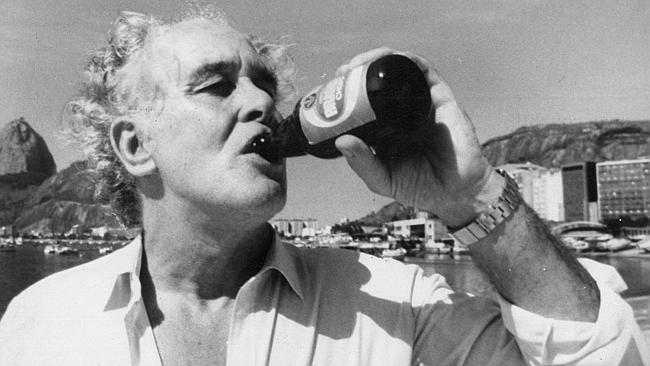
Today in History
Don't miss out on the headlines from Today in History. Followed categories will be added to My News.
IT sounds absurdly simple: A scarlet furniture van pulls up outside London’s Wandsworth prison as inmates circle E-yard during afternoon exercise. Suddenly a man in a stocking mask appears at the top of the 6m prison wall to drop two rope ladders; inmates quickly encircle the four prison guards.
In a chaotic couple of minutes, four of the 14 prisoners in the yard climb the ladders, jumping down to a mattress on the van roof. Among them are robber Eric Flower and his mate, Great Train Robber Ronald Biggs, who spent the next 36 years evading arrest in Australia and Brazil.
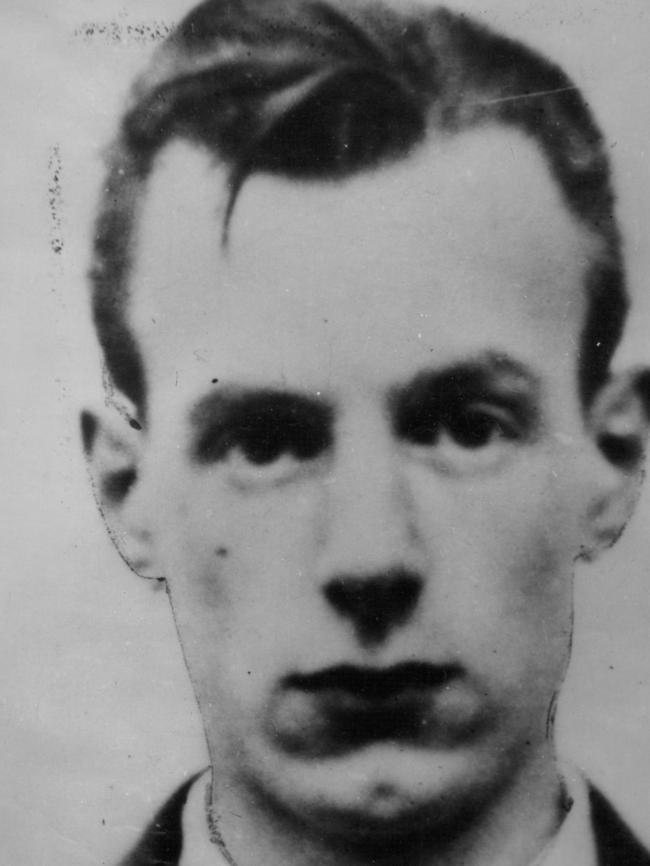
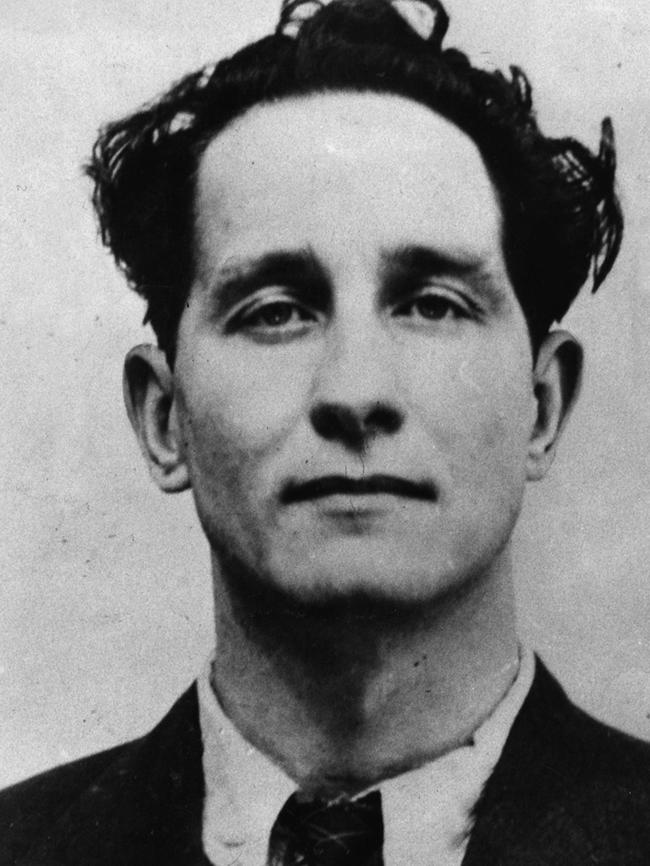
Brian Stone, Biggs’ accomplice in Wandsworth’s Special Watch wing, reserved for prisoners who had attempted escapes, was invited along. But two prisoners who knew nothing of the plot scaled the ladders before Biggs. Other officers reached the yard before Stone made it to the ladder.
At 3.05pm on July 8, 1965, Biggs became notorious not only for the daring robbery of a Glasgow-to-London mail train in the early morning of his 34th birthday, on August 8, 1963, but also as the second Great Train Robber to escape jail.
Escape investigator Detective Richard Lewis said the breakout was well prepared and “engineered without a doubt with collusion inside the prison”, although he ruled out involvement by prison guards.
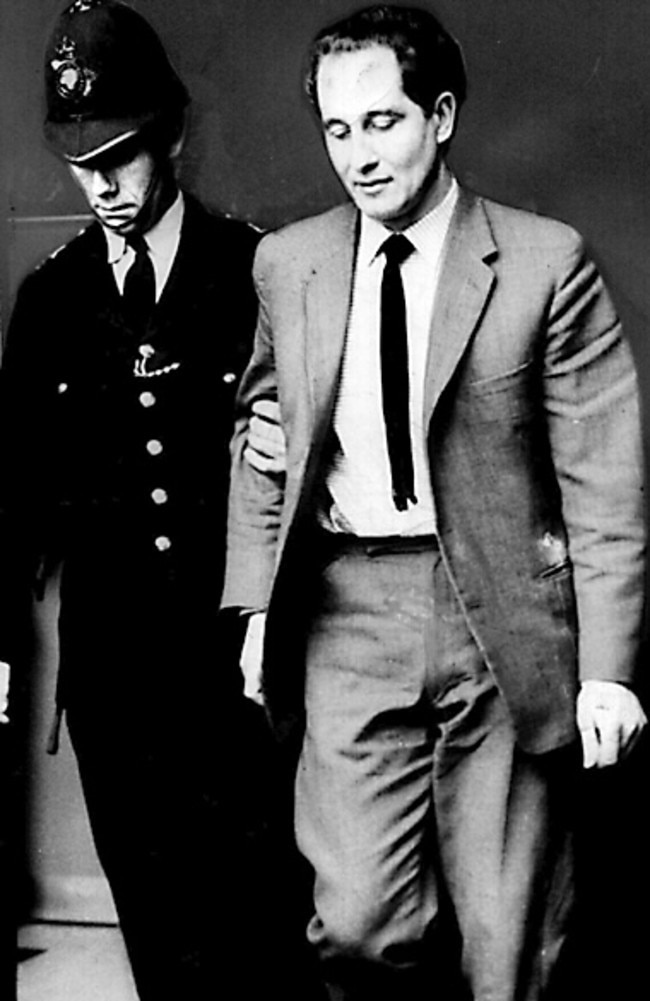
The robbery had netted £2.6 million, about £40 million ($83m) today, for a 17-member gang led by Bruce Reynolds. Biggs’s role was finding a substitute train driver to take over during the robbery at Bridego Railway Bridge in Buckinghamshire.
The train had stopped at fixed signals, switched by the gang to entice driver Jack Mills to investigate. Mills was knocked out by an iron bar wielded by an unknown gang member. His injuries would force him to quit work.
READ MORE ON OUR HISTORY PAGE HERE
Biggs, who netted about £148,000 from the robbery, was sentenced to 30 years jail in 1964, but spent only 15 months behind bars. In October Biggs and Flower fled to Paris, where he used robbery proceeds for plastic surgery and forged documents identifying him as writer Terence Furminger. His wife Charmian and sons Nicholas, 3, and Christopher, 2, joined him for Christmas in Paris.
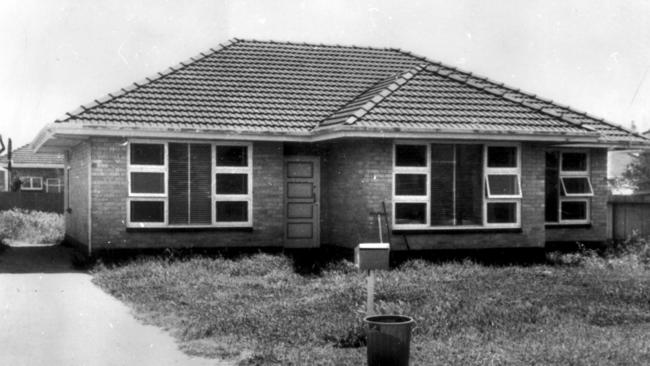
By New Year’s Eve Biggs, as Furminger, had landed in Sydney to set up house with Flower on Botany Bay. Charmian and his sons arrived in June, after a British passport was delivered to her door in May, 1966, with BOAC tickets for Margaret Furminger and her sons to fly from Zurich to Darwin.
“My children and I were threatened with physical violence if we did not come to Australia,’’ she later claimed.
Biggs had spent all but £7000 of his haul: £40,000 for plastic surgery, £55,000 on the package from Britain to Australia, and the rest on legal fees and expenses.
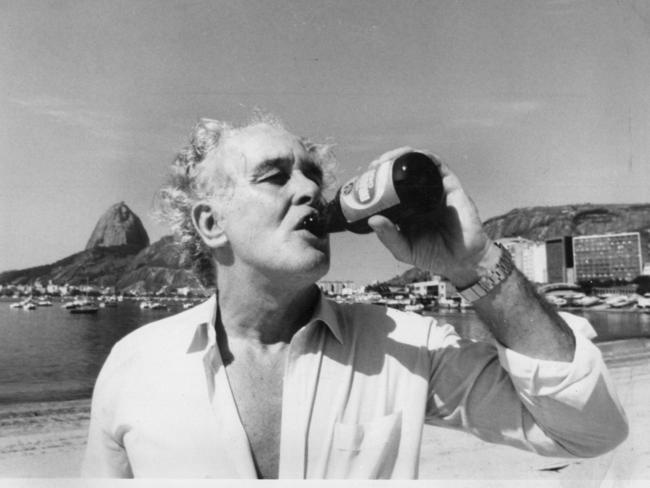
From Darwin the family drove to Adelaide, where Biggs and Flower settled. Biggs was running a boarding house as Terry King when third son Farley was born in April, 1967. Tipped off that police were suspicious, in May the family moved to Melbourne as Terence and Sharon Cooke.
Biggs rented a house at Blackburn North, working as a carpenter on jobs at Tullamarine and set construction at Channel 9 TV studios. Charmian lived in Doncaster East and worked in a factory. In October, 1969, newspapers ran a Reuters’ correspondent’s report that Interpol was closing in on Biggs in Melbourne, repeated on 6pm television newscasts.
Biggs fled to family friends Mike and Jess Haynes in Melbourne’s outer eastern suburbs before 14 armed police raided his home on October 17, when Charmian was arrested. She sold her story to Packer media outlets, which secured her release from jail.
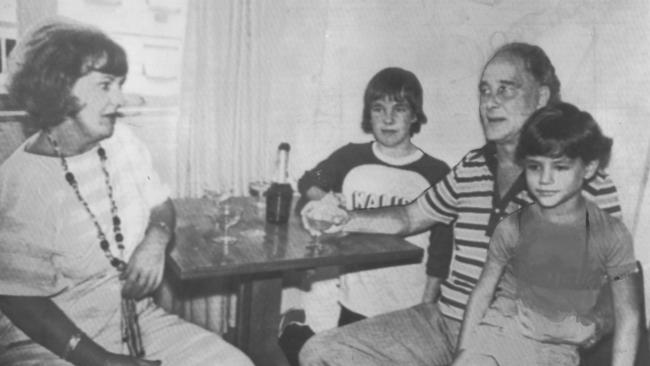
“I was paid $65,000 ... but the taxman took $40,000,” she explained. “I was left with enough money to buy this house.’’
Biggs fled on RHMS Ellinis in February. Six weeks later he landed in Brazil as Mike Hayes.
As Biggs settled in Rio de Janeiro, on January 5, 1971, his eldest son Nicholas died in a car crash in Melbourne.
WHAT HAPPENED NEXT
● Eric Flower was captured at Beecroft, Sydney, in 1969 and returned to Britain.
● Allowed to remain, Charmian reverted to her maiden name Brent and graduated with a BA from Melbourne University in 1975. She died at Box Hill, Melbourne, in December, 2014.
● Brazilian authorities refused to extradite Biggs in 1974 because his Brazilian girlfriend was pregnant. Biggs returned voluntarily to Britain in 2001 and died in December, 2013.
● Painter Mike Hayes, 44, of East Ringwood, pleaded guilty and served three months jail in 1979 for conspiring with Biggs in November, 1969. Before Biggs sailed on February 5, 1970, “the two men had gone to the toilet on board, changed photographs in the passport, and switched coats”.
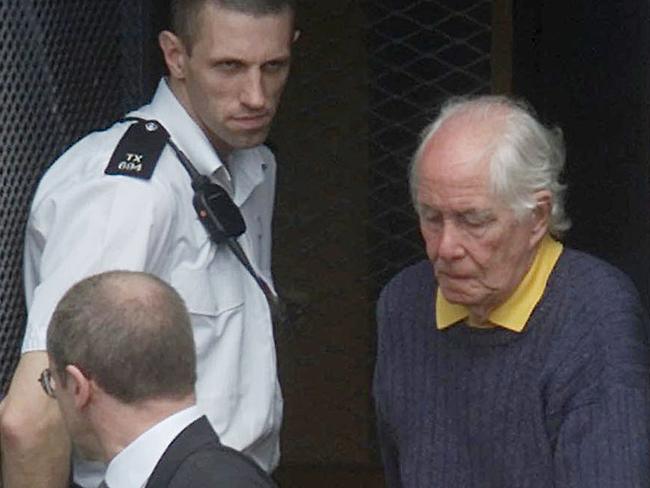
Originally published as Great Train Robber Ronald Biggs escaped 30-year sentence for life on the run in Australia


